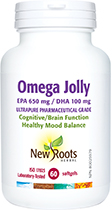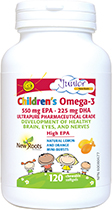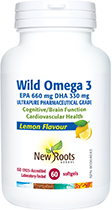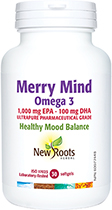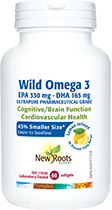Winter Blues: Is It SAD or Something Worse?
Seasonal affective disorder (SAD) is a mental-health condition usually brought on by the changing of seasons, particularly during the fall and winter months. Those affected by SAD may experience feelings of depression, sadness, hopelessness, difficulty in daily activities, and changes to appetite and sleep patterns. SAD is diagnosed when someone meets the criteria for major depressive disorder via the Diagnostic and Statistical Manual of Mental Disorders, 5th edition (DSM‑5). There is a connection between the time of year and feelings of depression. Moods improve as the specific season ends. Your doctor will likely do a PHQ‑9 scale for depression with you and ask about your personal and family history of depression.
While SAD can affect anyone, certain people are more at risk. Those who live in areas that experience longer and darker winters, adolescents, those with a family history of SAD, and people assigned female at birth. If depressed mood does not resolve itself with the transition out of winter, you may be experiencing depression or another mental-health condition. It is essential to speak to your doctor to figure out if what you are experiencing is SAD or another condition.
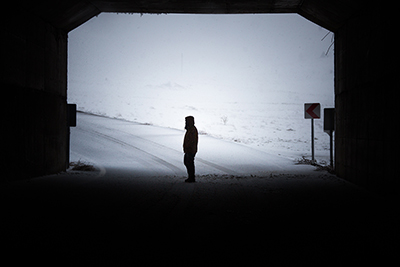 Seasonal affective disorder can manifest in various ways. Symptoms can include a persistent low mood, weight fluctuations, sleep-pattern changes, a lack of interest in daily activities, feelings of worthlessness or guilt, difficulty concentrating, and recurring thoughts of death. These feelings typically set in when the colder and darker days roll in, influencing changes to our circadian rhythm and mood.
Seasonal affective disorder can manifest in various ways. Symptoms can include a persistent low mood, weight fluctuations, sleep-pattern changes, a lack of interest in daily activities, feelings of worthlessness or guilt, difficulty concentrating, and recurring thoughts of death. These feelings typically set in when the colder and darker days roll in, influencing changes to our circadian rhythm and mood.
Although we cannot control the weather and changing seasons, there are things we can do to prevent the slip into SAD. These things include exercise, diet, proper sleep, and surrounding yourself with a supportive community.
What Has Been Known to Help?
Barring any physical or medical restrictions, consider finding an aerobic exercise you genuinely enjoy and feel accomplished doing.
 Exercise can help alleviate symptoms of depression, anxiety, and other forms of mental distress. No medication can offer the benefits of consistent physical activity.
Exercise can help alleviate symptoms of depression, anxiety, and other forms of mental distress. No medication can offer the benefits of consistent physical activity.
In terms of diet, it is essential to eat a balanced diet with sufficient proteins, complex carbohydrates (like fruits and vegetables), and healthy fats. Decreasing foods that are processed and high in sugars is always beneficial.
Other than improving your diet, getting enough sleep, and increasing physical activity, it is crucial to integrate activities you genuinely love into your daily routine. While the latter may seem obvious, seeking out joy and having fun is necessary to boost your overall quality of life and wellbeing. The power of fun is often overlooked, but it can lead to reduced emotional distress, improved self-worth, and stronger social bonds.
You Can Also Try These…
Vitamin D helps with symptoms of SAD due to its role in serotonin and dopamine synthesis, our happy hormones, which are critical for mood regulation. Lower sunlight exposure during fall and winter can lead to vitamin D deficiency. This impacts our mood and disrupts the body’s circadian rhythms that influence sleep-wake cycles.
As we discussed earlier, these are thought to be the reasons why people experience SAD.
Omega‑3 essential fatty acids help to support mood, improve concentration and focus, and lessen anxiety; they might also help to ease stress-related symptoms.
Lastly, another option that can be helpful in treating SAD is using a light-therapy lamp. These are used as artificial sunlight and have been shown to improve mood in 70% of people with SAD with 30 minutes of use per day.[1]
Seasonal affective disorder is a significant mental-health issue that comes with the transition of seasons, hitting many individuals hard during the darker, colder months. The symptoms, similar to those of major depression, can profoundly affect one’s life. However, we are not powerless against this condition. If you are facing persistent low mood, it is vital to consult with a health-care practitioner to distinguish SAD from other mental-health conditions and to find the proper treatment for you.
Remember: With the right strategies and support, it is possible to add a little sunshine to these gloomy months.
 Dr. Dasha Leneva, ND
Dr. Dasha Leneva, ND
A naturopathic physician based in British Columbia helping people understand their bodies so they can be more confident about their health. She believes that even small practical habits can make astounding differences in people’s lives.
[1] [No authors listed.] “Beat the Winter Blues: Shedding Light on Seasonal Sadness.” NIH News in Health, January 2013 · https://newsinhealth.nih.gov/2013/01/beat-winter-blues

 Stores
Stores








